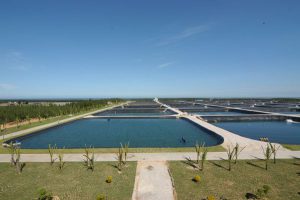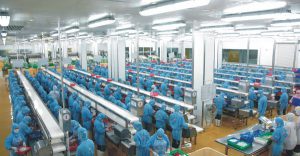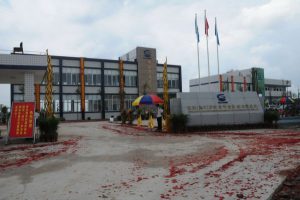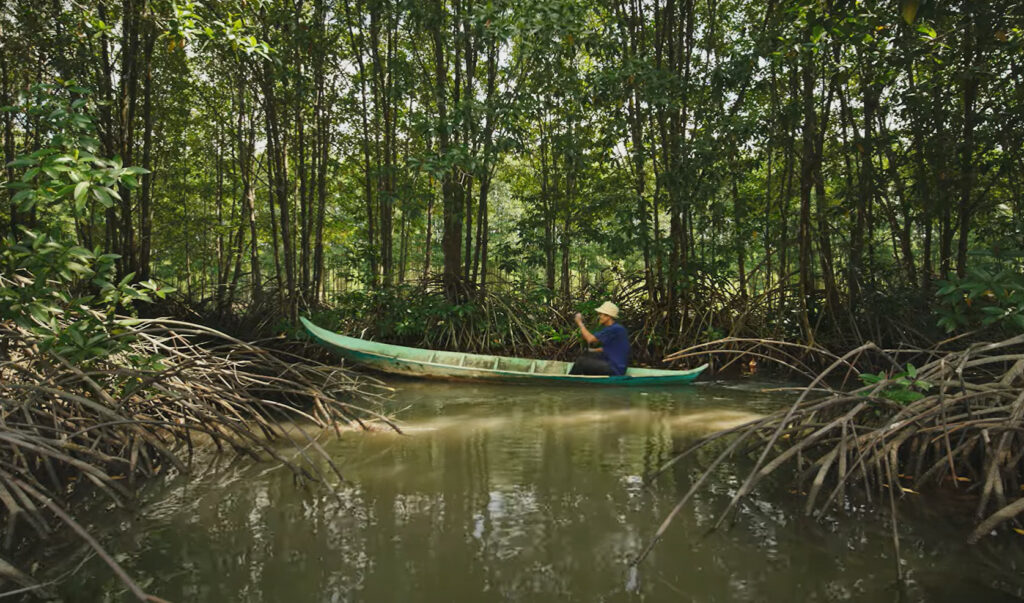Commitment To Excellence: A Young Guolian Sets Sights On Future
Editor’s note: This is the second in a series of profiles recognizing companies for their commitment to responsible aquaculture and the Best Aquaculture Practices (BAP) third-party certification program. The “Commitment to Excellence” seal denotes the number of years a company has been committed to the BAP program. To qualify, a company’s first facility must be certified for at least seven consecutive years, it must offer a minimum of three-star product, and it must demonstrate a dedication to the ecosystems and communities in which it operates above and beyond the requirements of the BAP standards. In June, Zhanjiang Guolian Aquatic Products Co. Ltd. was recognized for its “Commitment to Excellence.”
 Zhanjiang Guolian Aquatic Products Co. Ltd. was established in 2001. But only five years into the company’s existence, its seafood processing plant attained Best Aquaculture Practices (BAP) certification, in September 2006. The company’s first BAP-certified shrimp farm and shrimp hatchery came in July 2007, followed by its first BAP-certified tilapia farm in September 2009 and first BAP-certified feed mill in February 2012, allowing the company to offer four-star shrimp.
Zhanjiang Guolian Aquatic Products Co. Ltd. was established in 2001. But only five years into the company’s existence, its seafood processing plant attained Best Aquaculture Practices (BAP) certification, in September 2006. The company’s first BAP-certified shrimp farm and shrimp hatchery came in July 2007, followed by its first BAP-certified tilapia farm in September 2009 and first BAP-certified feed mill in February 2012, allowing the company to offer four-star shrimp.
As of May 2014, Guolian — based in Zhanjiang, Guangdong, China — is one of only six companies and the only Chinese company qualified to offer four-star shrimp, meaning that all four steps of the shrimp production chain — processing plant, farm, hatchery and feed mill — are BAP certified. (The other five companies are located in Thailand and Vietnam.)
It’s quite an accomplishment for a company that’s only 13 years old. Guolian’s eight-year association with BAP — the world’s most comprehensive aquaculture certification system — is a testament to its commitment to food safety and environmental and social responsibility, from the very early days of its existence through the present day.
 “From the beginning [Guolian] strove to build a fully integrated shrimp production system, including hatchery, feed mill, farms and processing plant. Guolian has been able to achieve that and also establish a strict quality control system with guidance from the BAP standards, thus improving our product quality, reputation and competitiveness in the marketplace,” said Mr. Chen Han, the company’s general manager.
“From the beginning [Guolian] strove to build a fully integrated shrimp production system, including hatchery, feed mill, farms and processing plant. Guolian has been able to achieve that and also establish a strict quality control system with guidance from the BAP standards, thus improving our product quality, reputation and competitiveness in the marketplace,” said Mr. Chen Han, the company’s general manager.
Guolian’s commitment to responsible aquaculture and the BAP program has paid off.
“BAP certification has helped us open doors to new customers and new markets. It has not only helped us improve our production and management efficiency but has also won us clients,” said Ms. Zhao Hongmei, the company’s vice general manager.
Currently, Guolian operates a total of 22 farms, 13 of which are BAP certified, and two processing plants — Zhangjiang Guolian Aquatic Products Co. Ltd. (for shrimp mainly) and Guangdong Gourmet Aquatic Products Co. Ltd. (for tilapia). The company, one of China’s largest shrimp producers, yields about 23,000 metric tons of shrimp annually, about 15,000 metric tons of which are exported.
 Guolian is also dedicated to the ecosystems and communities in which it operates, said the company. The company’s processing plant has acquired ISO14001:2004 certification, and its environmental guidelines are to adopt clean production practices that are environmentally friendly, prevent pollution, save energy and reduce waste.
Guolian is also dedicated to the ecosystems and communities in which it operates, said the company. The company’s processing plant has acquired ISO14001:2004 certification, and its environmental guidelines are to adopt clean production practices that are environmentally friendly, prevent pollution, save energy and reduce waste.
Additionally, Guolian’s ponds are deep, with plastic film covering the entire floor to reduce the environmental impact and prevent cross-contamination between the ponds and surrounding soil. Its farms use a water recycling system, and shrimp ponds do not require water flow in or out when the shrimp reach adulthood. As a result, the company saves water and reduces exposure to disease.
In cooperation with the American Soybean Association, Guolian is experimenting with replacing fishmeal with soybean ingredients in shrimp feed. This project aims to increase usage of low-cost, nutritious, sustainable soybean ingredients in shrimp feed while reducing the use of fishmeal. The advantages of the new practice are a reduction in feed costs, a reduction in the amount of nitrogen and phosphorus that go into the water, improvement in the disease-resistance ability of the animal, and an increase in production efficiency and product quality and safety.
 Furthermore, Guolian is working with a company to develop a new technology designed to increase dissolved oxygen levels in the ponds, to save energy by minimizing the use of machinery to maintain the dissolved oxygen levels of the ponds. The result will be a higher survival rate for the shrimp and a higher output in each pond.
Furthermore, Guolian is working with a company to develop a new technology designed to increase dissolved oxygen levels in the ponds, to save energy by minimizing the use of machinery to maintain the dissolved oxygen levels of the ponds. The result will be a higher survival rate for the shrimp and a higher output in each pond.
These developments mean little, however, if Guolian isn’t positioned for the future, environmentally, socially and economically. So what does the next five to 10 years hold for the company?
“Guolian aims to grow from a responsible and leading shrimp supplier to a global supplier for quality seafood. We look forward to transforming into a leading seafood supplier to the Chinese market and supplying safe, healthy, quality seafood to Chinese consumers.”
Latin American shrimp producer the Seajoy Group was the first company to be recognized as part of the “Commitment to Excellence” series.




